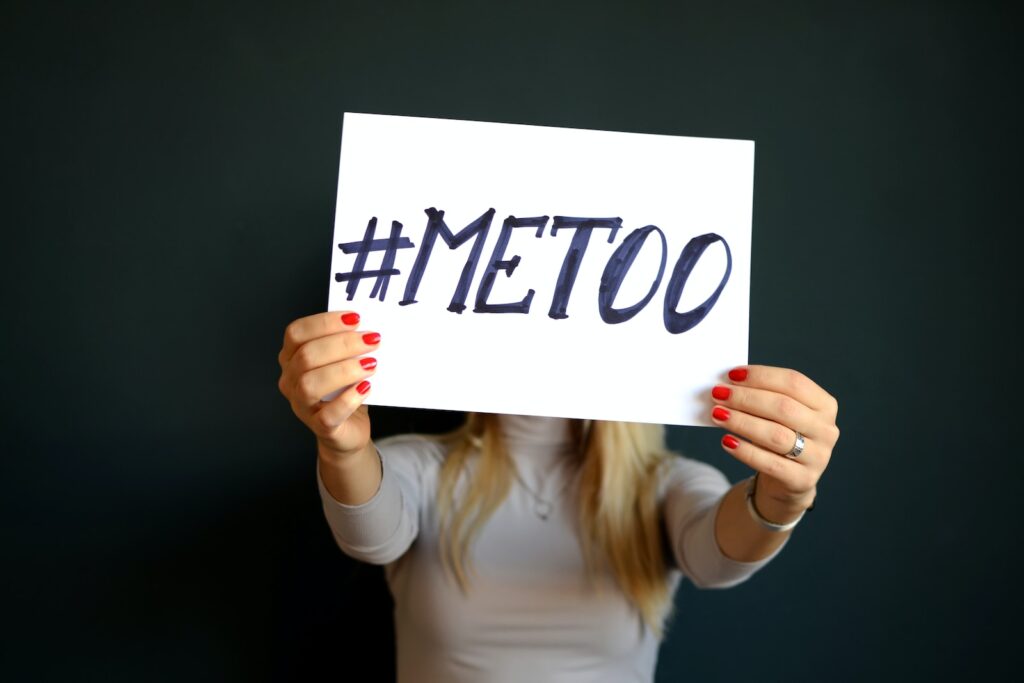
What should I do if I’m sexually assaulted at work?
Right now, South Korea’s cultural scene is in turmoil. This is because a string of cultural figures have been accused of sexual assault.
With the revelations against theater mogul Lee Yoon-taek as a watershed moment, more cultural workers are joining the#MeToo campaign, which is accusing others of sexual misconduct.
Accusations and revelations that famous actor Cho Min-ki sexually harassed students in various ways when he was a professor at Cheongju University have been pouring in one after another, and sexual harassment allegations have also been made against famous actors Oh Dal-soo and Cho Jae-hyun.
While some are wary of the risk of innocence in this wave of “Me Too” revelations, the general consensus is that this is an opportunity to end a culture of sexual assault that has been pervasive in our culture and society at large.
According to the 2015 Sexual Harassment Survey by the Korean Ministry of Gender Equality and Family, when asked what they did after being sexually harassed
78.4 percent of victims said they “tolerated it
when asked how they dealt with sexual harassment.
When asked why they ignored the issue, 50.6% said they didn’t think it would be resolved (45.5%), 45.5% said they didn’t think it was a big deal (17.7%), 17.7% said they were worried about being penalized by HR (16%), 16% said they were afraid of rumors and reputation (14.5%), and 14.5% said they didn’t know how to handle it.
As these statistics show, sexual assault is no longer an individual issue. It’s something that society needs to step in and protect.
We need to create a social structure and social climate where victims can legitimately come forward, and where complaints are handled fairly.
As part of this shift, today we’re going to talk about what to do if you’re sexually assaulted in the workplace.
The first thing to do is to document the
behavior
the behavior.
You should keep a detailed record of when, where, and how the other person molested you. As with any legal case, evidence and witnesses are important in sexual assault cases.
However, evidence and witnesses are often hard to come by because most sexual assaults are committed in secret between the perpetrator and the victim. That’s why it’s important to keep detailed notes of what the perpetrator said, did, looked at, and gestured at.
In addition, if you have any material evidence of the sexual assault, you should keep it and never throw it away.
The next step is to report the sexual assault to the
report
to the company.
You are required by your company’s employee handbook to report sexual assault to the appropriate department.
If you don’t have a policy, you can report it to Human Resources. If your company doesn’t have an HR department, you can report to the perpetrator’s immediate supervisor.
When you report sexual assault at work to your employer, you may wonder if they will take fair action. Bending your arms inward is unlikely to result in any satisfactory action or outcome, especially if the perpetrator is the president of the company or someone who can call the shots in the HR department.
In fact, according to an article in the New York Times, most victims who reported workplace sexual assault to human resources were dissatisfied with HR’s response.
Nonetheless, the reason you should report workplace sexual assault to your company is that if the case later goes to court, the courts will look closely at when the company received reports of sexual assault and what it did about it.
It’s great if your company responds to sexual assault to your satisfaction, but if they don’t do anything, or if they do, there’s no room for improvement, or worst of all, if you can’t even report it to them,
victim may, in fact, file a sexual assault complaint with a government agency
to a government agency.
The primary government agency to report sexual violence in the workplace is the United States Equal Employment Opportunity Commission (EEOC).
The EEOC is a federal agency, and states have state equivalents, so victims should file a charge with the appropriate government agency for their situation. The government agency that receives the complaint will investigate and determine whether sexual assault occurred.
If the sexual assault is found to be true, the government agency will issue a letter (“Right to Sue” letter) stating that the case may be sufficient to proceed as a civil lawsuit. The victim will then be able to file a civil lawsuit in court with the letter.
Workplace sexual assault is not a new problem. But that needs to change. It’s no longer something to be overlooked or ignored.
But this is not a problem that will be solved by changing one person. Society as a whole needs to change.
Song Dong Ho Law Firm will be at the forefront of this change. Let’s help companies raise awareness and prevent workplace sexual assault while ensuring victims’ rights are upheld.
If you have any further questions about the content of the column, or if there is a law you would like our readers to know about, please do not hesitate to contact us at mail@songlawfirm.com. I will reflect that in my next column.
